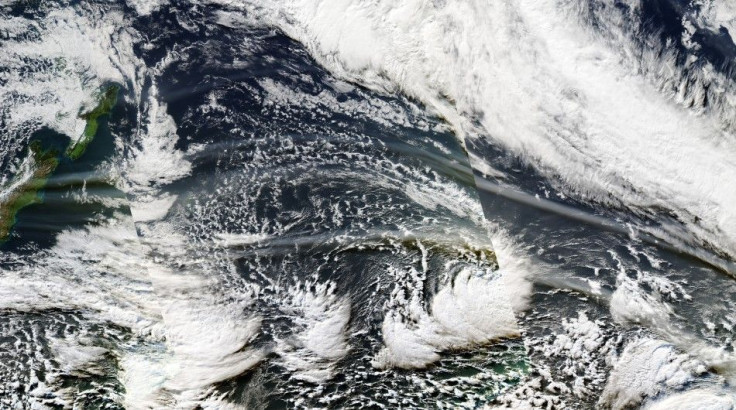Icy Water May Have Helped ?Miracle? Boy Survive Near Drowning

The cold temperature of the Pacific Ocean maybe have aided the miraculous survival of a 12-year old boy who was submerged underwater for at least 25 minutes on Friday.
Dale Ostrander was swimming during a church group outing to Cranberry Road beach in Washington State when he got trapped in a riptide and disappeared into the surf.
Rescue swimmers were quickly dispatched to locate and recover the boy, but as time passed, onlookers -- including Dale's parents -- began to lose hope.
When his limp body was pulled from the ocean, church group members dropped to their knees and prayed, fearing the worst.
"They really didn't know what else to do," assistant pastor Tim Minge told The Seattle Post-Intelligencer. "And so that was their first response to the problem was to pray."
Damian Mulinix, a staff photographer for the Chinook Observer, a Washington weekly, heard the rescue call over the scanner and rushed to document the scene.
Mulinix told the Seattle Times that the boy did not have any vital signs when he was pulled out of the water.
"Literally, he was dead for 20 minutes, half an hour probably," said Mulinix.
But after a rescuer administered CPR, Dale regained a faint heartbeat. He was then flown to an Oregon hospital and put into a medically-induced coma.
Throughout the weekend, his family feared he would be brain dead.
"They never expected him to live," Dale's father, Chad Ostrander, told the Seattle Post-Intelligencer. "They expected him to be a vegetable -- never walk, never talk, never say a word."
But on Sunday night, the boy opened his eyes and blinked when the doctors called his name, and on Monday he shocked everyone by speaking.
"We were trying to get him to cough, to get the congestion (cleared). (I told him,) 'You need to cough,'" his mother, Kristen Ostrander, told the Seatlle Post-Intelligencer. "And he coughed once. (And we said) 'OK, you need to do it again.' 'I don't need to' is what he said."
"That was when we knew, hey, maybe there is a miracle that's happening here," Chad said. "We understand hopelessness, but we also understand faith. God can work miracles."
Dr. Benjamin Abella, director of clinical research in the Center for Resuscitation Science at the University of Pennsylvania, said Ostrander's survival may be due to the fact that he was submerged in frigid water.
"A number of studies have shown that hypothermia -- reduced body temperature -- is highly protective of the brain when it is starved for oxygen and blood flow," Abella told ABC News. "The water that bathed him was certainly quite cold, and it's likely that his core body temperature dropped during his cardiac arrest event."
Abella said Ostrander's youth and overall health may have also helped his chances.
"There have been a number of reported cases where people have been rescued from icy water and restored to health," he said. "These cases are not common, but they aren't as rare as one might think."
While Ostrander's survival is considered a miracle by his loved ones, they know that the road ahead could be difficult. The boy will need intensive physical therapy and may have permanent brain damage.
The doctors "were very clear that he had been under for too long, had been without oxygen for too long," Kirsten Ostrander told ABC News, adding, "We trust (God) no matter what."
© Copyright IBTimes 2024. All rights reserved.






















